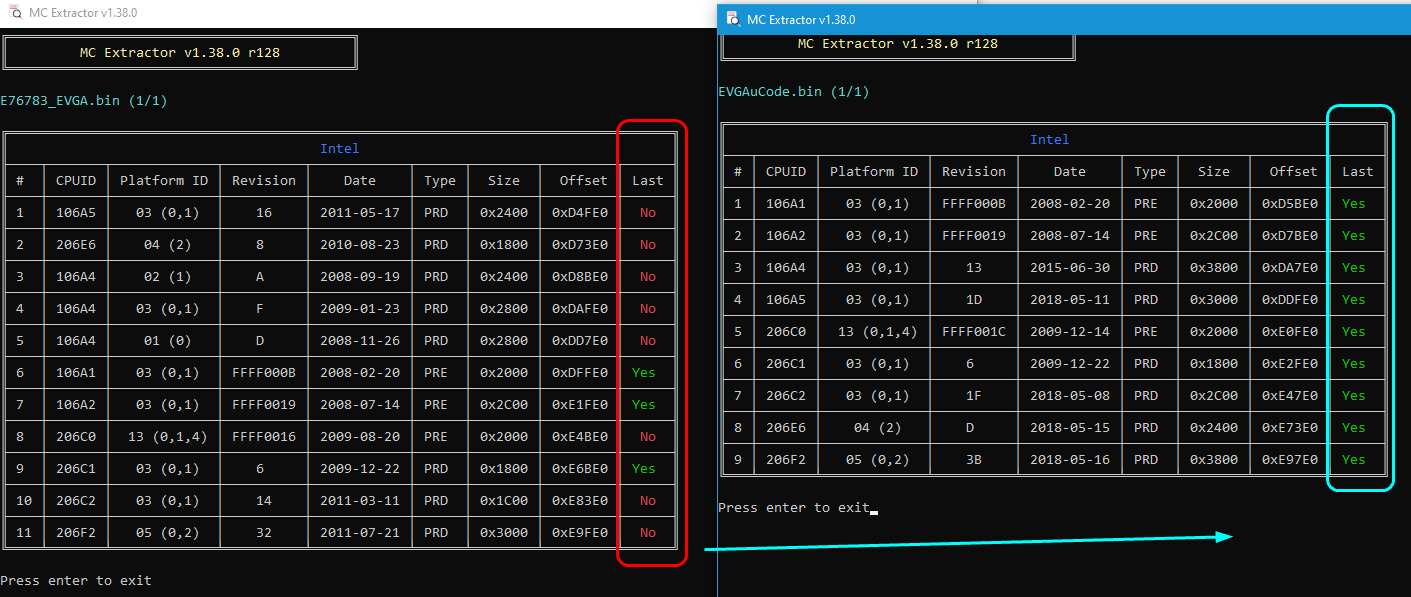Rather than spread multiple questions across multiple threads and create clutter, I hoped it’d be alright if I post a few quick questions regarding BIOS modding. I’m currently modifying my EVGA x58 e767 BIOS to update OROMS + microcode prior to an OS reformat. If we had an IRC channel, I would ask these there instead of posting).
1.) Why are OROMs necessary? Are they merely for pre OS-load usage (in BIOS/UEFI)? Are they essentially just “drivers” for pre-OS environment, and once the OS takes over, the OS uses its own higher-level drivers?
2.) After the OS takes over, what effect/importance does an OROM have at that point? Is OROM functionality even used anymore at that point? My assumption would be that an OROM is unnecessary/redundant once the OS is running, as the OS can use its drivers to interface with the hardware layer now, instead of having a “middle man” OROM to go between.
3.) I see suggestions about using different CBROM versions for even just specific functions/tasks of modding, meaning you might need to use 2-3 CBROM versions just to update one BIOS. How can one know whether this is necessary?
If a person is able to mod their x58 BIOS using just one CBROM version and the computer boots, does that mean everything is perfect? In other words, is it a binary “Good/Success/Perfect” vs. “Bad/Fail/Errored”, or is there a continuous spectrum of “Perfect mod: 100% performance” -> “Mediocre mod: small performance hit” -> "Bad mod: boots, but severely reduce performance"
Basically, if a modded BIOS boots, can one assume that it’s the best outcome/success it could be, even if the ordering of OROM modules were changed, names changed, sizing differences, etc.?
4.) Does the ORDERING of OROM modules in a BIOS matter? CBROM sometimes changes the order of updated/inserted modules, e.g., instead of A->B->C, it becomes A->C->B. Does this matter or have any effect on anything?
5.) Does the NAMING of OROMs matter when replacing an OROM with a newer version? I wouldn’t think so, but may recall someone mentioning it could, perhaps due to hash/checksum differences due to increased/decreased name length in index.
6.) I’ve seen Fernando and others recommend “matching” OROMs with particular driver versions. I get logically why this would make sense. But what could the consequences be for not doing this? What negatives would come from not doing it, or positives from doing it?
Updating CPU microcode:
1.) I’ve seen conflicting info on whether it’s necessary (or useful) to update microcode in the BIOS, since supposedly the OS loads the latest microcode itself after booting (at least with Windows). Is this true? And if so, what’s the point of updating BIOS microcode? (I don’t mind doing it, I’d prefer to even, just curious why)
2.) How can one know whether new (or older) microcode is better or worse? Is there a good benchmark or test to determine this, rather than just a subjective “feeling” of how things are?
3.) Does it matter if microcode is updated after an OS is already fully installed? I realize that the system will work fine and that this probably happens all the time, but similar to the importance in setting RAID vs AHCI upfront ahead of an OS install, or how the OS will adapt itself when seeing that the primary drive is an SSD, I’m wondering if the outcome would look any different between two identical systems, one with microcode fully updated before the OS is installed, and the other gets its microcode updated after the OS has already been installed.
If anyone prefers that I ask these in separate threads, I’m happy to do so, and hope that I haven’t caused concern here!


